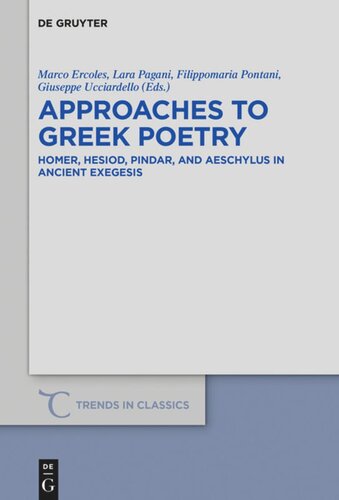

Most ebook files are in PDF format, so you can easily read them using various software such as Foxit Reader or directly on the Google Chrome browser.
Some ebook files are released by publishers in other formats such as .awz, .mobi, .epub, .fb2, etc. You may need to install specific software to read these formats on mobile/PC, such as Calibre.
Please read the tutorial at this link: https://ebookbell.com/faq
We offer FREE conversion to the popular formats you request; however, this may take some time. Therefore, right after payment, please email us, and we will try to provide the service as quickly as possible.
For some exceptional file formats or broken links (if any), please refrain from opening any disputes. Instead, email us first, and we will try to assist within a maximum of 6 hours.
EbookBell Team

4.7
96 reviewsIn the last decades the field of research on ancient Greek scholarship has been the object of a remarkable surge of interest, with the publication of handbooks, reference works, and new editions of texts. This partly unexpected revival is very promising and it continues to enhance and modify both our knowledge of ancient scholarship and the way in which we are accustomed to discuss these texts and tackle the editorial and exegetical challenges they pose.
This volume deals with some pivotal aspects of this topic, being the outcome of a three-year project funded by the Italian Ministry for Education, University and Research (MIUR) on specific aspects of the critical re-appraisal of Homer, Hesiod, Pindar, and Aeschylus in Greek culture throughout antiquity and the Middle Ages. It tackles issues such as the material form of the transmission of the exegesis from papyri to codices, the examination of hitherto unexplored branches of the manuscript evidence, the discussion of some important scholia, and the role played by the indirect tradition and the assimilation of the exegetical heritage in grammatical and lexicographical works.
Some strands of the ancient and medieval scholarship are here re-evaluated afresh by adopting an interdisciplinary methodology which blends modern editorial techniques developed for ‘problematic’ or ‘non-authorial’ medieval texts with current trends in the history of philology and literary criticism. In their diversity of subject matter and approach the papers collected in the volume give intended readers an excellent overview of the topics of the project.